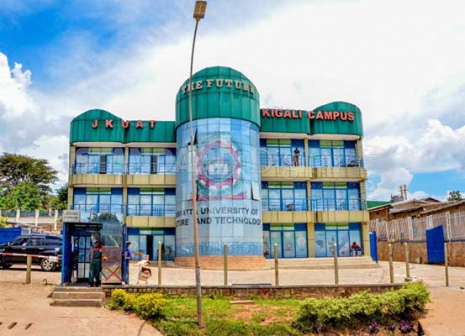×
The Standard e-Paper
Smart Minds Choose Us

The fate of two top Kenyan public universities hangs in the balance following sweeping higher education reforms taking place in Rwanda.
Jomo Kenyatta University of Science and Technology (JKUAT) Kigali campus is facing closure for performing poorly in a recent higher education quality audit. All its academic programmes have been suspended.